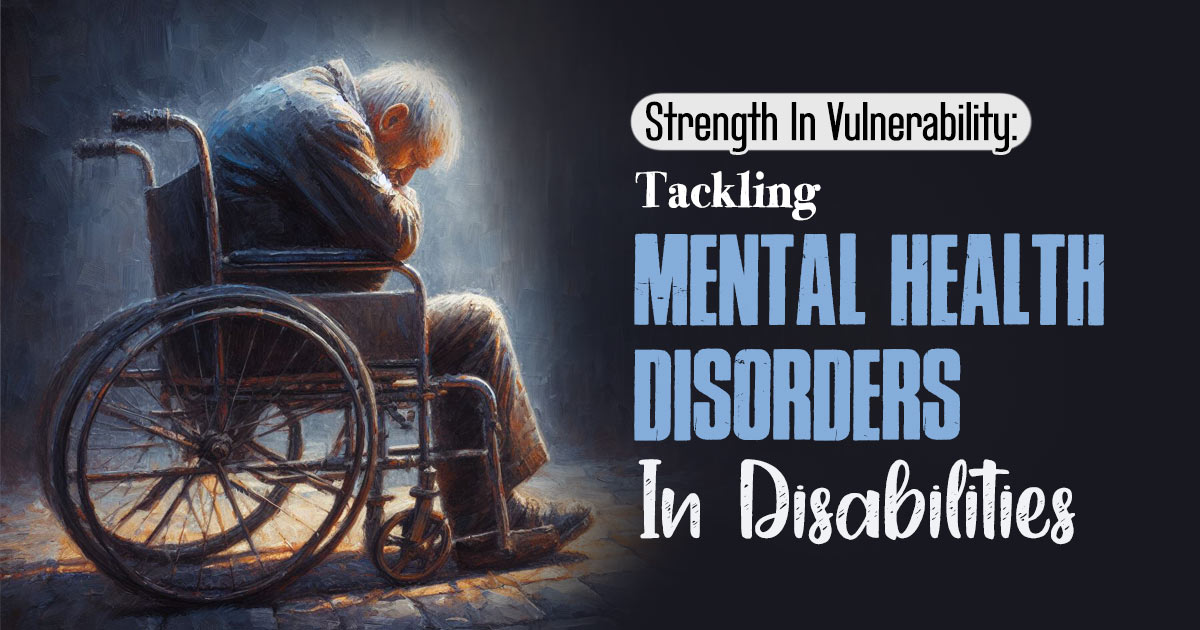Persons with disabilities are vulnerable to mental health disorders. They may experience mental health problems such as depression, anxiety and post-traumatic stress disorder (PTSD). This happens because of the hardships encountered in their day-to-day lives. For example, these hardships could be attributed to physical limitations, social isolation, or a lack of access to proper mental health services.
Dealing with mental health disorders in disabled people necessitates a comprehensive approach that incorporates the provision of mental health facilities, caregiver support as well as reduction of stigma and discrimination.
One critical barrier limiting the resolution of mental health disorders in disabled people is lack of appropriate psychological aid accessible to them. Physical obstacles, poor means of transport and inadequate finances, among other factors, often make it difficult for individuals with disabilities to get treated for their mental health issues. Additionally, there is an insufficiency in specialized personnel that can offer services suitable for this group.
The solution lies in making more mental health services available to people with disabilities. This can be done through funding programs that provide specialized mental care for persons living with disabilities, as well as training healthcare providers on how to handle these patients effectively. Furthermore, there should be affordable and reachable mental healthcare facilities tailored specifically for individuals with disabilities such as provision of transportation or catering for people with physical barriers.
Supporting caregivers is another important aspect that needs to be addressed when it comes to dealing with mental health disorders in disabled people. Sometimes caregivers might develop significant emotional distresses arising from taking care of their disabled loved ones which can adversely affect their own well-being. To relieve this burden from them, it would be helpful if they were given respite care services and psychological assistance alongside counseling meetings.
Apart from addressing issues concerning access to mental health services and supporting caregivers, tackling stigma and discrimination should also become one of our priorities while dealing with the interests of people who have disability. Stigma and discrimination have adverse effects on the mindsets of people with impairments, making them feel abandoned, have low self-esteem and lack equal access to opportunities for social and economic participation.
To reduce stigma and discrimination toward mental health disorders in disabled people, various interventions such as education campaigns can be put in place. Moreover, legislation should be enacted that seek to promote equality and inclusiveness amongst persons with disabilities. If people’s attitude towards the disabled change, there will be a suitable environment where correct mental health for this group is promoted.
Additionally, it is important to consider specific mental health requirements that are different among people with disabilities among other strategies. This means, for instance, individuals having physical disabilities may experience unique challenges regarding mobility or accessing mental care services while individuals who have intellectual disabilities may require unique kinds of support pertaining their cognitive and emotional needs.
Therefore, developing customized mental health services tailored for addressing mental health disorders in disabled people is critical. In fact, some of these services include assistive technologies, accessibility facilities and counseling specifically built for problems faced by people living with disability.Addressing mental health disorders in disabled people should be holistic.
This approach includes access to mental health services, caregiver support and stigma reduction efforts. To better the mental health outcomes among this group, there is a need to increase accessibility to mental health services, provide caregivers with support, and address their unique mental health needs. It is possible for people with disabilities to live a fulfilled and meaningful life without mental health disorders, provided they are given appropriate help and the right resources.






















